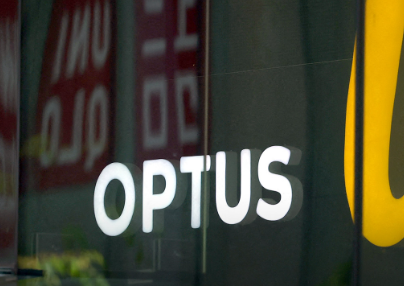
It should have been a routine night for Optus network engineers.
Instead, what began as a standard upgrade became a national tragedy.
Four Australians died after being unable to reach emergency services during a catastrophic triple-0 outage.
What started at 12:30am as a 'routine firewall upgrade' spiralled into disaster when the critical link between Optus’s network and triple-0 across South Australia, Western Australia, and the Northern Territory was severed.
Two customers tried to alert Optus that triple-0 wasn’t working that morning, but according to CEO Stephen Rue, these calls 'have not been handled as would be expected' and were now under investigation by the Telecommunications Industry Ombudsman.
It took until 1:30pm—after a desperate customer contacted Optus directly—for the company to realise the severity of the outage.
By 2:00pm, the system was restored, meaning nearly 14 hours had passed without access to emergency services.
'I have not witnessed such incompetence from an Australian corporation in respect to communications worse than this.'
How triple-0 actually works
Unlike normal calls, triple-0 uses separate core components managed jointly by telcos, governments, and emergency services in each state.
Problems with emergency calls do not affect ordinary network operations, but a targeted failure can make triple-0 unreachable while all other calls function normally.
For roughly 600 households, this meant phones rang perfectly when calling friends or family—but the call that could save a life went unanswered.
This was not Optus’s first deadly misstep.
In November 2023, an outage left over 2,100 people unable to access triple-0, with 369 failed welfare checks.
The company was fined more than $12 million.
CEO Stephen Rue took over in 2024 from Kelly Bayer Rosmarin, who resigned following the 2023 outage.
Despite pledges that such incidents would not recur, history repeated itself—this time with fatalities.
Even competitors have faced trouble: in March 2024, a Telstra network disruption caused 127 triple-0 calls to fail, earning a $3 million fine.
For seniors, the outage highlighted a stark reality: emergency services are increasingly dependent on mobile networks.
Protecting yourself when systems fail
- Keep multiple ways to contact emergency services: mobile, landline if available, and neighbours' phones
- Know your local police station and hospital numbers—not just triple-0
- Consider medical alert devices that use multiple network providers
- Inform trusted neighbours or family about any health conditions that might require emergency assistance
- During major emergencies, try calling from different locations or ask others to call on your behalf
Police later determined the eight-week-old baby’s death was unlikely caused directly by the outage, but the impact on the other emergencies remains uncertain.
Political reaction was swift and harsh.
SA Premier Peter Malinauskas declared: 'I have not witnessed such incompetence from an Australian corporation in respect to communications worse than this.'
WA Premier Roger Cook said: 'Optus must be held accountable for this incredibly tragic event and they must provide answers.'
Federal Communications Minister Anika Wells confirmed that the government had implemented 12 of 18 recommendations from a previous Optus Outage Review, with six still underway—clearly insufficient to prevent this disaster.
Regulatory scrutiny is expected, with the Australian Communications and Media Authority investigating, and the Australian Competition and Consumer Commission potentially assessing unconscionable conduct.
Industry analysts suggest fines could exceed $10 million, with some politicians calling for penalties proportional to revenue to genuinely impact large corporations.
The human cost was compounded by corporate priorities: CEO Rue admitted no Optus manager had spoken directly to the families of those who died, and the public was informed nearly two days after the outage ended.
Rue promised internal and independent reviews, but for the four families, these investigations arrived too late.
Experts agreed the disaster was preventable, with proper upgrade protocols, testing, and rapid response measures.
The issue, they said, was less technical and more cultural—corporate decision-making prioritising convenience over emergency reliability.
This tragedy is a stark reminder that telecommunications reliability is not merely a convenience—it can be a matter of life and death.
What This Means For You
A routine Optus network upgrade caused a 14-hour triple-0 outage across South Australia, Western Australia, and the Northern Territory, leaving many without access to emergency services.
Tragically, four people died during this time, including an eight-week-old baby and two elderly Australians.
Early warnings from customers were mishandled, exposing corporate negligence and repeated failures from previous outages.
Regulators, experts, and politicians have called for accountability, with stricter protocols and larger fines expected to prevent similar tragedies in the future.
For everyday Australians, this serves as a stark reminder to have multiple ways to contact emergency services and to be aware of alternative safety measures, especially during major network disruptions.
This recent Optus triple-0 outage is not an isolated incident and highlights the ongoing risks when network failures disrupt emergency services.
For another striking example of how telecommunications mishaps can have serious consequences, there is a case where Optus faced significant penalties following a previous outage.
Exploring that story can provide further insight into the importance of reliable emergency communication systems.
Read more: Optus faces $12 million in fines after emergency services outage
Fourth death linked to 10-hour Optus triple-zero outage — Reports that a fourth person died after being unable to contact the triple-zero emergency line during a 10-hour Optus outage.
https://www.sbs.com.au/news/article/fourth-death-linked-to-optus-triple-zero-outage/0tejm01pf
Optus was warned twice about outage to Triple-0, which is linked to four deaths—NZ Herald — Coverage of the outage, confirming four deaths and early warnings to Optus that were mishandled.
https://www.nzherald.co.nz/world/op...ed-to-four-deaths/OQJ36HWSN5A6HOEZ36346U453Y/
Breaking: Fourth Death likely linked to Optus Triple Zero failure, meanwhile Optus Customers tried to warn the company hours before the issue was fixed — Details the 14-hour outage beginning at 12:30am and the customer's attempts to alert Optus.
https://eftm.com/2025/09/optus-cust...rking-hours-before-the-issue-was-fixed-267090
Optus Triple Zero outage has left 4 people dead. A telecommunications expert explains what went wrong – and how to fix it — Explains why normal calls still worked, how triple-0 operates separately, and the history of Optus network failures.
https://theconversation.com/optus-t...ains-what-went-wrong-and-how-to-fix-it-265692
Optus outage unlikely to have cost baby's life: police — Police investigation determining that the eight-week-old baby's death was unlikely caused directly by the outage, while other impacts remain unclear.
https://aapnews.aap.com.au/news/beyond-belief-optus-penalty-call-over-outage-deaths
How many more Australians must suffer before emergency telecommunications are treated as a non-negotiable priority?







